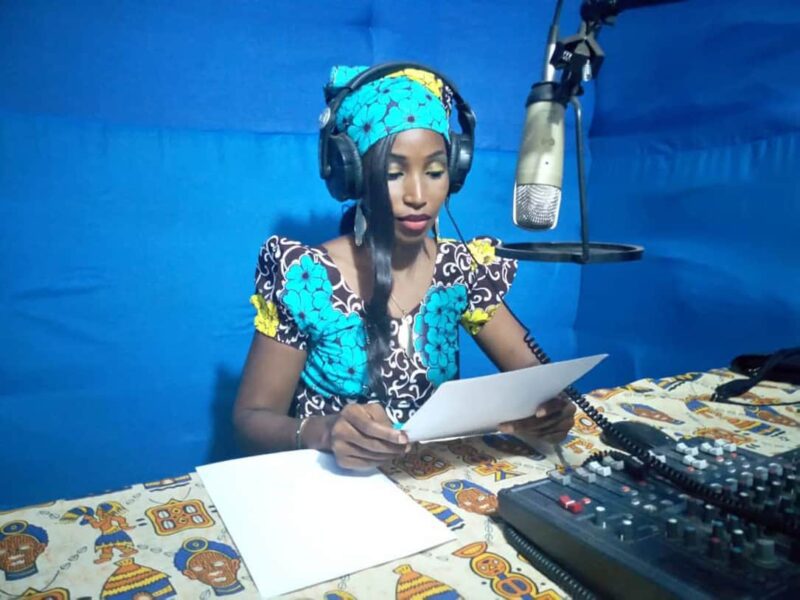The arrival of the COVID-19 pandemic in the Central Africa Republic (CAR) and other African countries coincided with an “infodemic” of misinformation about the virus. Some people believed that they could not get infected because of the color of their skin and the hot weather. A fake press release promoted a garlic-based treatment as a viable cure. Rumors swirled around the CAR government’s closure of places of worship to curb the spread of the virus.
Pivoting from politics to the pandemic
Before the outbreak of COVID-19 in CAR, Internews had established a fact-checking desk to prevent the dissemination of politically biased language, fake news, and rumors – and to advance a constructive media environment that would promote peaceful dialogue and reduce intercommunity tensions.
This project was coming to a close as the pandemic started, but Internews decided to keep the fact-checking desk afloat in response.
False information circulates widely in CAR via social networks, traditional media, and word of mouth. During a health crisis, rumors about false cures and ineffective prevention techniques are doubly dangerous. The country has almost five million people and only three respirators. And false information can be deadly in a country still plagued by endemic violence.
Since the outset of the virus, the Internews fact-checking team has collected and debunked countless rumors swirling in the public discourse.
“I hope that our work will encourage other young Central Africans to practice quality journalism,” says Salwa Salle, one of the team members.
Distributing accurate information through text, online, and radio
Articles debunking myths and providing accurate health information are disseminated in the form of texts in French, via a newsletter aimed at opinion leaders in CAR, and on the website of Internews’ partner, the Journalists’ Network for Human Rights (RJDH).
Their stories are also reworked into a radio format in the national language Sango. The program is called “Eke Sioni Sango” (in English: “Let’s deny the misinformation”) and is broadcast on a station owned by long-time partner Réseau des Journalistes pour les Droits de l’Homme (Journalists’ Network for Human Rights).
SYNERGY, a group of thirteen radio stations, also broadcasts a live radio show titled “E tiri bira na coronavirus” (“Let’s fight together against the coronavirus”), supported by Internews, that debunks virus rumors.
“Before the collaboration, there were only tentative efforts to raise awareness,” says Internews Trainer on Humanitarian Journalism, Jean-Claude Ali-Syhlas. “We then brought together the directors of Bangui’s public, private and community radio stations. None of them had taken the initiative, for example, to talk about barrier gestures (prevention), the importance of which was already known.”
“In the provinces, the existence of the virus and the barrier measures are not generally well known by the local people,” says Auguste Gbogbo, the coordinator of the Central African Community Media Network. “So, we must constantly come back to hygiene, hygiene, hygiene … and it will be useful for public health even after the coronavirus pandemic.”
CAR is holding its presidential election in December, and the campaign season will likely lead to a multiplication of rumors and hate speech. With skills honed by tracking pandemic disinformation, the fact-checking desk will undoubtedly be needed once again, to focus on political misinformation.
Internews’ work in CAR is funded by USAID.
(Banner Photo: Salwa Salle, radio journalist from Ndele (north of CAR) and member of the Internews Fact-checking Desk. Credit: Internews)
